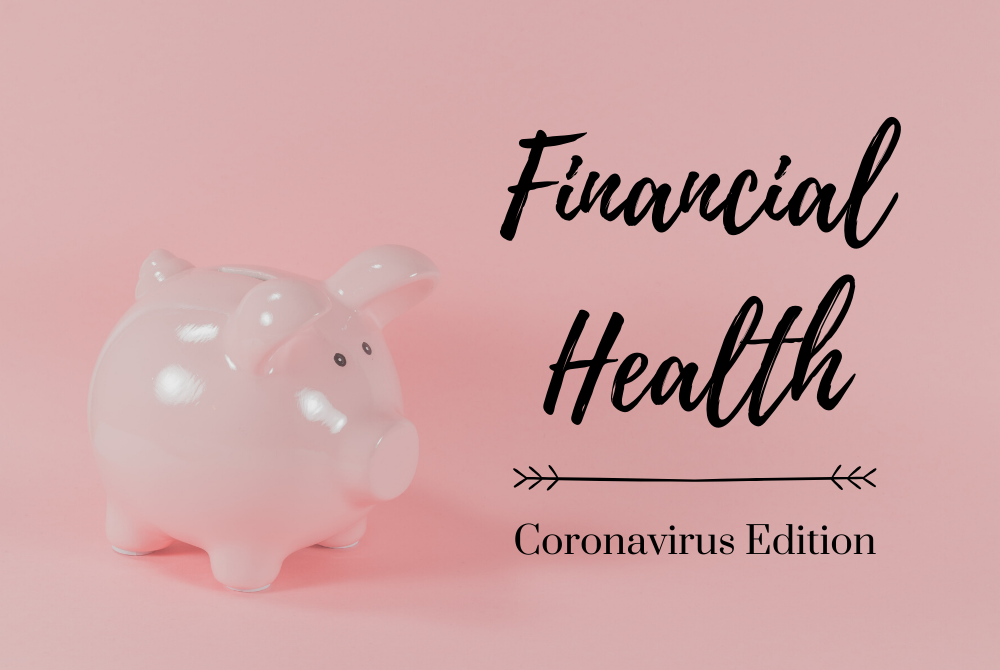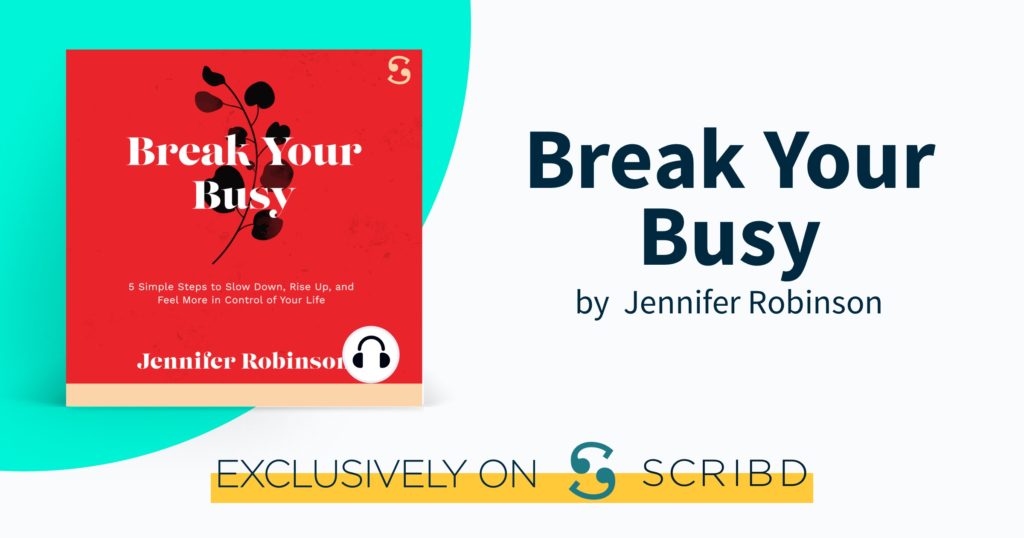
Have you dared to venture out to the grocery lately? If so, then you’ve seen that things look dramatically different. But, don’t worry, your financial health does not need to look as barren as those toilet paper shelves.
Along with the empty shelves, people are taking extra precautions to stay healthy. You’ll see people wiping down their shopping cart handles, wearing face masks, and keeping a safe distance from one another. Not only that, but the hand sanitizer and cleaning products aisles are the “must-have” places to be.
The coronavirus pandemic has sent our global health and the economy into a tailspin. And it has brought life as we know it to a screeching halt. That’s enough to make anyone feel a little panicky.
The good news is that everyone seems more acutely aware of practicing good hand hygiene. And that is never a bad thing from a health perspective.
So, now the question becomes, what does the coronavirus pandemic mean for our financial health?
RELATED: CORONAVIRUS CRAZINESS: A PEACEFUL LIVING WELLNESS APPROACH TO A PUBLIC HEALTH EPIDEMIC.
HOW CAN CORONA VIRUS AFFECT YOUR MONEY?
Being smack dab in the middle of a global pandemic is scary enough on its own. It’s something that none of us have ever experienced before. And the worst part is the feeling that things are spiraling out of control.
On top of that, we don’t know what to expect. And, we don’t know — what we don’t know. But, with new developments every day, some financial implications are coming to light.
WHAT TO CONSIDER
I’m going to start with the more stressful subjects, like loss of income. But, worry-not, I will go on to give you the good news through valuable action-steps you can take to protect your financial health during this outbreak.
- Loss of income. What if you get quarantined and have a job where working remotely is not an option? What if you have to take a forced sick leave? And with all the school closures, what if you have no one to watch your kids?
- Draining your emergency fund. Hopefully, you have one. And if you’re unable to work, this is the time to use it. But, be sure to use it wisely! And try to make it last as long as possible.
- Relying on credit cards. You could open yourself up for more money trouble down the line if you have to take this route. Credit cards and loans should always be a last resort.
- Increased utility costs. With everyone staying indoors more, utility usage is bound to increase.
- Skyrocketing food bill. Food is already the 3rd largest expense behind mortgage and transportation. And the average cost for a family of four on a budget is at least $600 a month, conservatively. Now, imagine what happens when everyone is at home all day for a couple of weeks or more.
- Unexpected medical costs. This is a possible concern if you or a family member needs to seek treatment.
With new coronavirus cases every day, we are all working overtime to keep our bodies healthy. But, we must also take steps to ensure that our finances stay healthy as well.
WHAT CAN WE DO TO MAINTAIN FINANCIAL HEALTH?
- Avoid panic buying. Seeing empty shelves can definitely be unnerving. But remember, pandemic, or no pandemic, your regular bills will still need to be paid. So, it’s better to buy what you need for one or two weeks tops. Once things settle down, WHICH THEY EVENTUALLY WILL, you don’t want to end-up in debt!
- Contact your insurance. New policy changes are occurring every day to address coronavirus concerns. Find out what your benefits are if you need to be hospitalization or treatment. Plus, the government is putting together an emergency relief bill for affected families.
- Stick with your emergency fund or cash. If you are unable to work, this is when your emergency fund needs to come into play. If you don’t have one, then do your best to avoid turning to credit cards.
- Sell excess clutter. This a better option than turning to credit or loans. If you have things lying around taking up space that you haven’t used in years, this may be the time to finally get rid of it. There are so many apps and online stores to choose from. Some include Facebook Marketplace, Letgo, eBay, Offer up, and Next door.
- Make minimum payments for now. You’re probably thinking, duh! But for the people who are in debt payoff mode, they may worry about losing their momentum. And I completely understand. But this will be okay for a short period of time.
- Get creative to earn money. With more people stuck at home, they are probably searching for more content than ever. If you have a skill or something you can teach, this may be a great time to create a quick “how-to” course or YouTube video. For example, what if you teach people how to prepare quick and delicious meals with pantry items? You can create a recipe e-book and earn a quick profit as well!
- Ignore the stock market if you can. We have all seen our investments take a nosedive during this troubling time. It’s hard not to feel fear and want to jump ship. And depending on when you’ll need your money will determine what actions you should take. If time is on your side, then money experts are saying that it’s essential to ride out the storm, and the market will rebound. But, if you’ll need your money sooner rather than later, then speak with a free or cheap financial advisor.
- Don’t forget your EAP. Employee Assistance Programs offer services that are free, voluntary, and confidential. They help families struggling with a variety of issues. There is also counseling if you’re feeling anxious or overwhelmed. Plus, they may even provide financial assistance and other resources. Check with your HR department for more information.
- Remember, we’re all in this together. Take this opportunity to let go of any keeping-up-with-the-Joneses mindset you may succumb to in normal times. It’s incredibly freeing to let go of financial envy once-and-for-all!
RELATED: THE DAYS OF FINANCIAL ENVY ARE OVER
You can also download my free checklist of Top 25 Budgets Hacks. These simple tips can help you save money now and long after the crisis has passed.
THE BOTTOM LINE
Due to the coronavirus, we are all thrust into unfamiliar territory. And to say that it has been unsettling is an understatement!
Of course, it’s impossible to know what will be the full global impact on our health or our economy.
All we can do is stay informed, take things day by day, and keep making our health a priority.
But at least now you also have some actions you can start taking today to soften the blow to your financial health as well.
Eventually, the coronavirus will be stopped in its tracks!
Until then, stay healthy physically and financially!
DeShena

Hi, my name is DeShena. I am a working mom, turned entrepreneur and money mindset coach. I achieved my mission of becoming 100% Debt-Free and starting a business. My goal is to help other professional women learn to crush debt AND pursue their passion.
Links:



7 Responses
Great insight, thank you for sharing!
Thank you Sarah. DeShena is super smart and savvy! We are grateful to have her as one of our contributors. I’m delighted that you liked her article.
Warmly,
Jen Robinson
Editor-In-Chief, PLW
you’re absolutely right about the elctricity bills. people are in for an ugly surprise when they get their next bills.
Yes. We hope people will take heed and take on a conservation mindset when it comes to their utilities!
Thank you for your comment.
Best,
Jennifer
Editor-In-Chief
Those are great advice and really “needed to hear that” kind of tips ^^ I am already doing more or less all of those, I have stopped looking at my investments going down. I am lucky to have some savings as I lost my job, but even luckier that my partner still has his job 🙂
Hi Pauline, I am so glad that you liked DeShena Woodard’s article! She is super intelligent and practical. We are grateful to have her on our Peaceful Living Wellness team! Thanks so much for you comment and we hope that you are staying peaceful during this time of uncertainty.
Warmly,
Jen Robinson
Editor-In-Chief